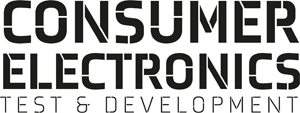This past week the US government launched what it calls an AI ‘Bill of Rights.’ Whilst the white paper has no legislative power - it has been described instead as “call to action” – it seems like a significant moment.
Whatever the political factors that led to the white paper, it’s clear that the Biden administration are reflecting very real public concern about encroachment of AI algorithms in to our lives.
At the same time that the so-called ‘AI Bill of Rights’ was announced in the US, in Europe the EU finally passed its ‘common charger’ law, which mandates that all new smartphones must have a USB-C port from 2024. The law, which is likely to force Apple to abandon its proprietary Lightning port, is part of a broader push in the EU to force tech companies into more sustainable practices.
What these recent developments seems to show is that legislators are finally getting serious in their attempts to hold tech companies to account for the impact their products are having both on society and the wider environment.
The interesting question for the testing community is what role testing and certification might play in this push for more ethical responsibility in consumer electronics.
In a recent conversation with IEC Secretary-General Philippe Metzger that you can read in full in the upcoming edition of CET&D magazine, we asked him about this. Metzger was clear that while the IEC has published standards for both AI and for USB-C ports, the standards agency is a science-based organization and is not about to become an arbiter on ethical matters.
This is certainly the right answer. And yet, isn’t it also true in a sense that standards agencies are always ethically-driven? The need for standards in the first place comes in large part from the need to ensure that products are safe for consumers and meet a certain level of quality. That’s an ethical concern.
In another interview in the upcoming issue of the magazine, we spoke to Roland Wooster of the Video Electronics Standards Association (VESA).
Wooster was behind VESA’s display standard for high dynamic range (HDR). At the time he was a display technologist at Intel– where he still works. He approached VESA in early 2017 about developing the HDR standard after becoming aware of the problems that the lack of standardization was leading to in the development of the new technology.
He said that tech companies were claiming to have HDR and yet without a unified certification scheme there was no way of verifying if their claims were true or false. In developing the standard, Wooster was motivated therefore by an ethical concern for the truth.
So can the foundational ethics that underpin standards be extended in our own age to cover controversial subjects like AI, the sustainability of product components or product repairability?
Are we likely to see, for example, a global standard for products featuring AI that circumscribes what the technology is allowed to do and how it is allowed to do it? Or a certification scheme that weeds out products that contain components sourced from conflict zones?
As technology becomes ever more ubiquitous we are being forced to confront more and more how it impacts both us and our environment. While standards are certainly not the only answer to how to deal with these impacts, they can surely form part of the solution.

